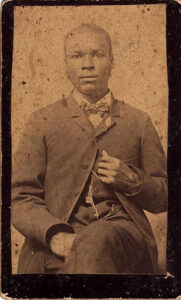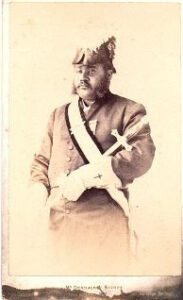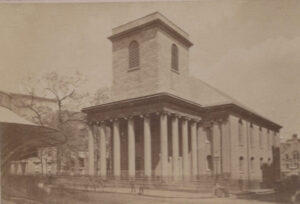Prince Hall and The First African Freemason Lodge In Boston 1776.
July 3, 1776
Prince Hall’s founding of a Freemason Lodge for Africans in the city of Boston is an early milestone in the uphill battle of Blacks to achieve social respect and acceptance.
Who was Prince Hall?
Facts about the early life of Prince Hall are sketchy, but he is thought to have been born in Barbados in 1748 and to have arrived in Boston in 1765 as a slave owned by William Hall, a tanner. He masters leather working with Hall and is manumitted in 1770, becoming a freedman. Legend has it that he fights briefly in the Revolutionary War before opening his own shop making leather drumheads for the army. His business is a success, and records show him as both a property owner and voter.
From early on Hall makes it his personal mission in life to elevate the status of blacks within American society
From early on Hall makes it his personal mission in life to elevate the status of blacks within American society. He becomes an admirer of Freemasonry with its stated commitment to personal integrity, brotherly love and charitable works. Around 1774 he petitions for membership in the all-white St. John’s Lodge in Boston but is rejected. Undeterred he gains acceptance for himself and 14 other blacks from a local British army unit whose members belong to a Lodge chartered in Ireland.
When the war ends, the British vacate the Lodge and the Irish grant Hall a permit to found an African Lodge on July 3, 1776, under his title as Worshipful Master. Eight years later he applies to the masonry in England and receives a charter signed by the Duke of Cumberland for The African Lodge No. 1, later called African Lodge 459.
It flourishes in Boston, and Hall opens additional lodges in Philadelphia and Providence, and then across other states.
Hall’s lodges are particularly appealing because they tap into the roots and customs of Africa. This creates its own black community that is both comfortable and affirming. At the same time, the demands of running the day to day operations provide members with the skills and confidence needed to assimilate into American society.
As Hall’s reputation grows, he enters the public arena, lecturing on behalf of ending slavery and returning freed black to their homelands. He is also a fervent supporter of educating black children and addresses the Massachusetts Congress twice on behalf of establishing schools for Africans. When his pleas fail, he starts up his own lodge programs to meet the goal.
Price Hall publishes two books during his lifetime: Charge 1792 and Charge 1797. On one hand he comes across as the predecessor to future black protesters such as David Walker and Frederick Douglass, chronicling abuses faced and calling for courageous resistance:
Patience, I say; for were we not possessed of a great measure of it, we could not bear up under the daily insults we meet with in the streets of Boston. How, at such times, are we shamefully abused, and that to such a degree, that we may truly be said to carry our lives in our hands, and the arrows of death are flying about our heads. …tis not for want of courage in you, for they know that they dare not face you man for man, but in a mob.
On the other hand, he is the conciliator, urging his fellow Freemasons to adhere to the teachings of God:
My brethren, let us pay all due respect to all who God had put in places of honor over us: do justly and be faithful to them that hire you, and treat them with the respect they may deserve; but worship no man. Worship God, this much is your duty as Christians and as Masons.
Prince Hall is regarded as one of the most influential black men in America as of 1800. He dies in December 1807 and is laid to rest alongside other prominent Bostonians of his time at Copp’s Hill Burying Ground. But his legacy lives on with some 5,000 Prince Hall Lodges in America, Canada, the Bahamas and Liberia serving over 330,000 members, as of 2012.



Further Reading on Prince Hall.
Please refer to our internal and external resources regarding Prince Hall.
Read Chapter 11 and Chapter 43 in our book Prelude to the Civil War to learn more
See Princehall.org for more details as well!
